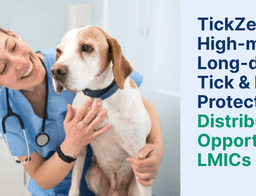Long COVID Supplements: Fatigue and Other Symptoms

Contents Overview
- Long COVID Brain Fog and Other Symptoms
- Scientific Research on Long COVID Risk Factors
- Supplements for Long COVID Prevention
- Supplements for Long COVID Management
Long COVID Brain Fog and Other Symptoms

Long COVID presents a wide range of symptoms that last for weeks or even months after the initial infection. Identifying these symptoms is crucial for effective management and appropriate treatment. Here are some common symptoms associated with Long COVID:
- Chronic Fatigue: Persistent and overwhelming tiredness that doesn’t improve with rest.
- Brain Fog: Difficulty concentrating, memory lapses, and confusion.
- Respiratory Issues: Shortness of breath, coughing, and chest pain.
- Body Aches: Persistent aches and pains in muscles and joints.
- Sleep Disturbances: Insomnia, disrupted sleep patterns, and unrefreshing sleep.
- Headaches: Frequent or severe headaches that persist.
- Heart Symptoms: Palpitations, rapid heart rate, and chest discomfort, which can affect blood pressure.
- Digestive Issues: Nausea, diarrhea, and loss of appetite.
- Mental Health Problems: Anxiety, depression, and mood swings.
- Loss of Taste or Smell: Reduced or complete loss of these senses.
- Skin Conditions: Rashes and other dermatological issues.
- Throat and Voice Problems: Sore throat, hoarseness, and difficulty swallowing.
Scientific Research on Long COVID Risk Factors
- Severity of Initial Infection: Individuals who experienced severe symptoms or required hospitalization are more likely to develop Long COVID.
- Pre-existing Health Conditions: Those with underlying conditions such as diabetes, heart disease, or respiratory issues may be at higher risk.
- Age: Older adults are more susceptible to prolonged symptoms compared to younger individuals.
- Gender: Studies suggest that women may be more likely to develop Long COVID than men.
- Obesity: Higher body mass index (BMI) is associated with a greater risk of long-term symptoms.
- Immune Response: Abnormal immune responses or autoimmune conditions may contribute to the persistence of symptoms.
- Lifestyle Factors: Smoking, poor diet, and lack of exercise can increase vulnerability to Long COVID.
Supplements for Long COVID Prevention

The prevention of Long COVID starts with reducing the risk of initial infection and promoting overall health. Getting vaccinated and staying up-to-date with booster shots can significantly lower the risk of infection or re-infection. It is recommended to follow public health guidelines, such as wearing masks, practicing social distancing, and frequent handwashing. Limiting exposure to crowded and poorly ventilated spaces can also reduce the risk. To strengthen the immune system, it's important to maintain a balanced diet, regular exercise, and adequate sleep.
In the event an individual tests positive for COVID-19, it is essential for them to seek prompt medical attention, as this can prevent or reduce the risk of Long COVID as a complication. During the illness, it is important for the patient to monitor their health and report any lingering symptoms to their healthcare provider. Researchers have also highlighted the most important way for managing and possibly preventing long COVID - rest. “Rest is incredibly important to give your body and your immune system a chance to fight off the acute infection,” says Dr. Janna Friedly in the Time article related to Long COVID.
Rest is incredibly important to give your body and your immune system a chance to fight off the acute infection.
There are a variety of supplements which can help boost the immune system to help prevent Long Covid as a complication of COVID-19 infection.
Magnesium Supplements
Magnesium is a vital mineral found in green leafy vegetables, nuts, seeds, and whole grains. Low magnesium levels can lead to reduced immune activity and increased inflammation. Inadequate magnesium intake or status is also associated with hypertension, impaired lung function, cardiovascular disease, type 2 diabetes, and obesity. These conditions are known to be connected with poorer COVID-19 outcomes.
Magnesium supplements can help maintain adequate levels of magnesium in the body, supporting immune function and overall health, which plays an important role in preventing Long COVID.
Vitamin D Supplements
Vitamin D, found in fatty fish, beef liver, cheese, and egg yolks, supports the immune system by reducing viral replication and inflammation. Approximately 1 billion people globally suffer from vitamin D deficiency, and 50% of the population experiences vitamin D insufficiency. Vitamin D deficiency increases susceptibility to infections like influenza and hepatitis C.
Vitamin D supplements can help ensure there is sufficient intake of this crucial nutrient, which can bolster the immune system and aid in the prevention of Long COVID.
Zinc Supplements
Zinc is a mineral that is present in oysters, beef, poultry, beans, nuts, and dairy. It is essential for immune function as it contains antiviral and anti-inflammatory properties. It can also help maintain tissue barrier integrity and is involved in taste.
To maintain optimal levels, Zinc supplements can be taken to support the immune system and reduce an individual’s vulnerability to infections, which can help prevent complications of COVID-19 infection.
Supplements for Long COVID Management

Scientific research continues to study the benefits of food supplements in the management of post-COVID syndrome. While studies are ongoing, patients can consider supplement options that have been scientifically proven to manage symptoms such as chronic fatigue, brain fog, respiratory problems, body aches, and more, which are commonly seen in Long COVID patients. These symptoms can greatly impact the daily lives of those affected, and any potential relief from these key supplements may be beneficial in alleviating symptom severity.
Omega-3 Supplements
Omega-3 fatty acids, found in fish oil, flaxseeds, and walnuts, play an important role in reducing inflammation and supporting brain health. Deficiency in omega-3s can lead to skin issues, though most people in the U.S. consume enough to avoid deficiency. However, increasing EPA and DHA intake can further benefit cardiovascular health.
The anti-inflammatory properties of Omega-3 and its function for overall health make them valuable in managing and preventing prolonged symptoms such as chronic fatigue, brain fog, and body aches associated with Long COVID.
Vitamin C Supplements
Melatonin Supplements
Melatonin is a hormone that regulates sleep. It is naturally present in the body and is also found in small amounts in foods like cherries and tomatoes. Melatonin supplements can help alleviate sleep disturbances, a common symptom of Long COVID, by improving sleep quality and reducing insomnia. They also have potential anti-inflammatory effects, which can aid in the overall Long COVID management.
For effective Long COVID management, it is essential to understand that high doses of these supplements should be approached with caution due to potential side effects. Long-term supplementation should be guided by healthcare professionals. It remains crucial for patients to ensure up-to-date vaccinations, maintain a balanced diet, keep a healthy lifestyle and have sufficient rest for prevention and management of Long COVID.
References: WebMD (2024). “The Benefits of Vitamin C” Time (2022). “Why You Should Rest—a Lot—If You Have COVID-19” NIH (2020). “Immune Modulatory Effects of Vitamin D on Viral Infections” MedlinePlus (2022). “Omega-3 fats - Good for your heart” European Review for Medical and Pharmacological Sciences (2021). “Proposal of a food supplement for the management of post-COVID syndrome” CDC (2023). “Benefits of Getting A COVID-19 Vaccine” Cleveland Clinic (2022). “Vitamin D Deficiency” NIHR (2022). "Researching long COVID: addressing a new global health challenge” NIH (2024). “Dietary Supplements in the Time of COVID-19” Gavi (2022). “The long haulers: what we now know about Long COVID” NIH (2023). “Long COVID” Columbia University (2024). “Risk Factors for Long COVID Revealed” JAMA Network (2024). “Epidemiologic Features of Recovery From SARS-CoV-2 Infection” Buckinghamshire Healthcare (2021). “Nutrition and long COVID” Yale Medicine (2024). “Long COVID treatment: Does your vitamin D level play a role?” NIH (2023). “Long COVID: major findings, mechanisms and recommendations” Nature Portfolio (2023). “The immunology of long COVID” NIH. “Vitamin C Fact Sheet for Consumers” NIH. “Magnesium Fact Sheet for Consumers” NIH. “Omega-3 Supplements: In Depth” NIH. “Zinc Fact Sheet for Consumers” NIH. “Melatonin: What You Need To Know” NIH. “Vitamin D Fact Sheet for Consumers”
Don't want to miss the next AdvaCare article?

Recommended Content

Pet Supplements Manufacturer: Functional and Premium Ingredients with USA Quality Standards & Traceability


Global Pet Supplement Market Trends: Why Distributors are Shifting to Premium Grade Quality


TickZero™: High-Margin, 12-Week Flea & Tick Protection, Distributor Opportunity in LMICs
